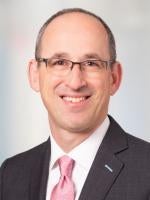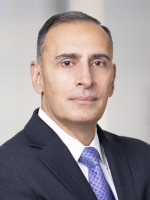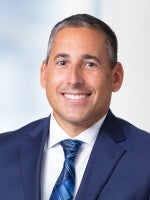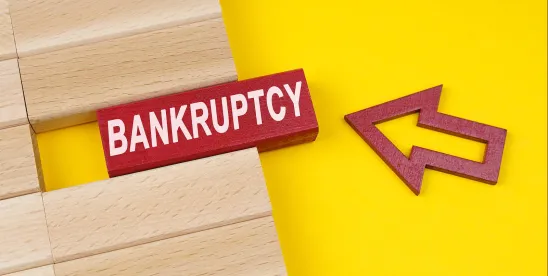In a much-anticipated decision, the United States Court of Appeals for the Third Circuit recently held that unsecured noteholders’ claims against a debtor for certain “Applicable Premiums” were the “economic equivalent” to unmatured interest and, therefore, not recoverable under section 502(b)(2) of the Bankruptcy Code. Nevertheless, because the debtor was solvent, the court found that the unsecured noteholders were entitled to recover more than $270 million in post-bankruptcy interest at the higher “contact rate” under the notes, as well as redemption premiums and other fees, by operation of the absolute priority rule.
The decision, in In re The Hertz Corporation, No 23-1169 (3rd Cir., Sept. 10, 2024) (“Hertz”), adopts the reasoning of the decisions by the Fifth Circuit Court of Appeals in Ultra Petroleum Corp. v. Ad Hoc Committee of OpCo Unsecured Creditors (In re Ultra Petroleum Corp.), No. 21-20008 (5th Cir. Oct. 14, 2022) (“Ultra”) (which we covered here: https://natlawreview.com/article/special-alert-fifth-circuit-targets-make-whole-claims-bankruptcy) and the Ninth Circuit Court of Appeals, in Ad Hoc Comm. of Holders of Trade Claims v. Pac. Gas & Elec. Co. (In re PG&E Corp.), 46 F.4th 1047 (9th Cir. 2022), cert. denied, 143 S.Ct. 2492 (2023) (“PG&E”). Like Hertz, both Ultra and PG&E similarly held that, while make-whole premiums for an unsecured creditor tied to future interest payments are the “functional equivalent of unmatured interest” and not recoverable under section 502(b)(2), in the case of solvent debtor, such claims are recoverable under the so-called “solvent debtor” exception, which is an equitable exception to section 502(b)(2)’s general prohibition on payment of unmatured interest.[1]
But, like Ultra and PG&E, it was the “solvent debtor” exception to the rule that carried the day. Most bankruptcy cases do not involve solvent debtors (indeed, far from it). So, while the unsecured noteholders had a victory in terms of their recovery in this case, the trinity of decisions in the Fifth, Ninth, and now Third Circuits has significant implications for unsecured lenders who extend credit with an expectation that make-whole claims are enforceable in bankruptcy.
Key Takeaways
In addition to the Practical Implications set forth below, if there is a silver lining for insolvent cases, it’s that the Hertz court addressed only the rights of an unsecured creditor. As we said in our post on Ultra, we continue to believe that there is a legal basis for a secured creditor to recover a make-whole (or a prepayment premium) based on the rights in section 506(b) of the Bankruptcy Code, which allows for the payment of “interest on such claim, and any reasonable fees, costs, or charges” when the creditor is oversecured (i.e., the value of the collateral exceeds the claim amount).
Headlines sounding the death knell for the enforceability of make-whole premiums in bankruptcy are misleading. While unsecured creditors of an insolvent debtor may have an uphill battle, secured creditors have a different set of rights under the Bankruptcy Code and their path to recover a make-whole premium has not been addressed by Hertz, Ultra, or PG&E.
Relevant Facts
Hertz filed bankruptcy in Delaware in May of 2020 as a casualty of the Covid crisis. Prior to the bankruptcy, in 2019, the company warned in an SEC filing that a potential chapter 11 filing would likely wipe out all value for stockholders. A dire prediction, but par for the course when a company enters chapter 11.
Hertz, however, had a surprising and quick turnaround. A year after it entered chapter 11, it was sold to a group of private equity funds and proposed a chapter 11 plan (the Plan) that would pay all creditors in full and provide a return to equity. Because creditors were receiving full payment, they were presumed to accept Hertz’s Plan, and were not allowed to vote. Instead, they were all conclusively presumed to accept the Plan. But the Plan was not without problems.
Applicable Premiums
Prior to bankruptcy, Hertz issued unsecured bonds maturing biennially from 2022 through 2028 (the Notes), but the Plan did not pay the holders of the unsecured Notes (the Noteholders) the contract rate interest for the time Hertz was in chapter 11. Instead, the Plan provided that the Noteholders would receive interest at the much lower “applicable federal judgment rate.”
Further, Hertz’s Plan did not provide for the payment of certain contractual fees, which the court described as:
charges provided in the Notes, specifically, variable fees (calculated using financial formulas) designed to compensate lenders for their lost profits when a borrower pays them back ahead of schedules. These fees are generally called make-wholes.
Under the Notes, these fees were referred to as “Applicable Premiums.” From the court’s perspective, that was just another name for a make-whole fee.
Disallowed as Unmatured Interest, then Begrudgingly Paid at the Federal Judgment Rate
Hertz argued that, as a matter of law, the Applicable Premiums should be disallowed as unmatured interest, which is disallowed as a matter of law under section 502(b)(2) of the Bankruptcy Code. However, because Hertz was solvent, Hertz conceded that it was required to pay creditors post-petition interest. But in Hertz’s view, the interest was only to be paid at the (lower) federal judgment rate – not the higher interest rate in the contract.
The Noteholders disagreed. They claimed the Applicable Premiums should not be disallowed as unmatured interest because they do not fit the dictionary definition of that term. The Noteholders also argued that pre-Bankruptcy Code caselaw grants them an equitable right to payment in full (i.e., both contract rate interest and the Applicable Premiums) because Hertz is solvent. The Noteholders argued that, because the confirmed Plan classified the Noteholders as unimpaired, they must receive interest at the full contract rate. To hold otherwise would provide the stockholders with a windfall at the expense of creditors with a higher priority.
Bankruptcy Court Ruling
In July 2021, the Noteholders filed a complaint in the Bankruptcy Court seeking payment of (i) post-petition interest at the contract rate, (ii) the Applicable Premiums, and (iii) flat fees for early redemption of the 2022 and 2024 Notes. The Bankruptcy Court dismissed their claims for the higher contract rate interest. It concluded that, as unimpaired creditors of a solvent debtor, they were entitled to interest at the “legal rate,” in accordance with sections 1129(a)(7)(A)(ii) & 726(a)(5), and that “legal rate” is the federal judgment rate. The Bankruptcy Court rejected the Noteholders’ argument that a “solvent debtor exception” mandated payment at the contract rate. The Bankruptcy Court also dismissed the claims for flat redemption fees for the 2022 and 2024 Notes because those fees were not triggered as a matter of contract law.
Following discovery, the parties moved for summary judgment on the issue of whether the Applicable Premiums (i.e., make-whole claims) constituted “interest” for purposes of section 502(b)(2) of the Bankruptcy Code.
The Bankruptcy Court concluded that the “economic substance” of the Applicable Premiums was interest and disallowed the Noteholders’ claims. While this dispute was developing, the decisions Ultra and PG&E were rendered, both of which required solvent debtors to pay unimpaired creditors post-petition interest at the rate provided for in the contract. Armed with these decisions, the Noteholders asked the Hertz Bankruptcy Court to reconsider its decision disallowing the claims.
Upon reconsideration, the Bankruptcy Court did not change its ruling and sua sponte certified its decision for direct appeal to the United States Court of Appeals for the Third Circuit (bypassing an appeal to District Court).
Analysis of The Hertz Appeal
A. Disallowance of the 2024 Notes’ Fee
First, the Noteholders appeal the Bankruptcy Court’s ruling that they were not entitled to an early redemption fee on the 2024 Notes.[2] The 2024 Notes required Hertz to pay a flat fee if they were redeemed early (“after October 15, 2019, and prior to maturity[.]”). Here, the court agreed with the Bankruptcy Court and found that the fee was not triggered because the 2024 Notes, by their terms, matured when Hertz filed bankruptcy and their redemption occurred after maturity. The court recognized that “the Bankruptcy Court’s ruling allows Hertz to redeem the 2024 Notes well before 2024 without a fee” however, when “viewed in the complex context of modern leveraged finance, that is not as ‘bizarre’ a result as the Noteholders suggest.”
In its analysis, the court noted that there were only two ways for the Notes to mature. First, they could mature early upon an acceleration approved by the lenders or, second, they could mature upon a bankruptcy filing, “which would not happen unless the lenders threatened to accelerate.” The court went on to note that “there is fierce debate whether borrowers should pay fees in that case, and both sides have valid points.” Acknowledging that there were likely “extensive negotiations around the terms of the 2024 Notes” the court found the disallowance of the early redemption fee was not “absurd.” “Given our limited familiarity with the intricacies of technical debt contracts, we should rule based on their terms alone, not our (perhaps uninformed) views of fairness.” The court went on to acknowledge that “what might appear fair to an unfamiliar court could be unfair when understood in full.” In short, the court concluded that denial of the early redemption fee was fair under the contract because the Notes were redeemed after maturity, not before.
The Noteholders tried a different approach, which was also rejected. The Noteholders argued that certain provisions of the Notes “refer to maturity arising ‘on acceleration’ or otherwise,” which the Noteholders argued supported their position that the use of the term “maturity” for purposes of payment of the early redemption fee meant the day the Notes were scheduled to mature.
The court was not persuaded. In parsing the language, the court noted a difference between “maturity” and “Stated Maturity,” with the latter meaning the fixed date on which payment of principal is due. Stated Maturity (as a defined term) is different from maturity, which occurs whenever a debt obligation becomes due. When interpreting contracts, the court noted, “we read defined and undefined terms as having distinct meanings.” This is a key distinction.
Hertz never promised to pay the Noteholders a fee in this situation and contract law does not bind parties to promises they did not make, said the court.
B. Treatment of Applicable Premiums
The court next turned to the Applicable Premiums, which the court essentially found was another label given to a make-whole payment. The court distilled the mechanics of the make whole concept as follows:
[I]f [the lenders] receive the present value of the profits they would have booked in the alternate world where they were paid off on the Redemption Date. These make-whole fees guarantee lenders a minimum return, no matter how quickly a borrower pays them back.
Hertz argued that the Applicable Premiums must be disallowed under section 502(b)(2)’s prohibition on claims for unmatured interest because “that is exactly what they are.”
The Noteholders argued that the Applicable Premiums are not interest. They lost that argument in the Bankruptcy Court, which held that, whatever they may be called, the Applicable Premiums were interest in “economic reality.” This economic reality approach is one of two approaches courts have traditionally taken when analyzing the issue. Hertz, for its part, reiterated the “economic reality” approach on appeal.
The other approach looks at whether the make-whole fee fits within dictionary and caselaw definitions of “interest.” This definitional approach, as noted by the court, has been criticized as elevating form over substance, but the Noteholders doubled down on the definitional argument. The Noteholders argued that “interest is a fee accruing while borrowed money is used. By contrast, the Applicable Premiums do not slowly and steadily accrue over the life of the Notes; they come into being fully formed upon an early redemption.” In other words, according to the Noteholders, the Applicable Premiums are “not compensation for Hertz’s ongoing use of the Noteholders’ money,” one of the preferred definitions of interest, “but rather compensation for the termination of Hertz’s obligations to the Noteholders.”
The court found the Noteholders’ reading to be too narrow, and that the definition does not require a charge to accrue daily or be contingent on the ongoing use of money.[3] Instead, the court found that the Applicable Premiums were among a “suite of fees [the lenders] extracted from Hertz in return for their credit.” Notwithstanding the Noteholders’ arguments to the contrary, at its core, Hertz commitment to pay the Applicable Premiums was “compensation” for the use of the Noteholder’s funds.
Likewise, the court rejected the Noteholders’ argument that the Applicable Premiums reflect the “reinvestment costs” suffered by the Noteholders from “redeploying their capital earlier than anticipated.” This is similar to the argument raised (and rejected), in Ultra, where the lenders claimed that the make-whole represented “liquidated damages.” The Ultra court found that interest labeled as ‘liquidated damages’ is still interest for purposes of an analysis under section 502(b)(2).[4]
Because section 502(b)(2) disallows a claim for unmatured interest if it is either definitionally interest or its economic equivalent, and because the court found that the Applicable Premiums are both, the Court of Appeals in Hertz found that the Bankruptcy Court correctly disallowed the Noteholders’ claims for the Applicable Premiums.
C. Resurrecting the Claim Through the “Solvent Debtor” Exception
Like Ultra and PG&E, the Noteholders were not left without a remedy. Hertz’s financial turnaround left open the door for the court to give the Noteholders relief. Following Ultra and PG&E, the Third Circuit found that the “solvent-debtor” exception survived the enactment of the Bankruptcy Code and operated to suspend section 502(b)(2)’s disallowance of claims for unmatured interest and required full payment of the Applicable Premiums to the extent they represented valid contractual obligations.
In explaining its rationale, the court merely needed to restate the question in a way that made the result seem inevitable.
It is a technical question of bankruptcy law, and we give that issue its nuanced due below. We can rephrase it in a way that makes the answer predictable: Can Hertz use the Bankruptcy Code to force the Noteholders to give up nine figures of contractually valid interest and spend that money on a massive dividend to the Stockholders? The answer is no. As the Supreme Court told us more than a century ago, “the rule is well settled that stockholders are not entitled to any share . . . until all the debts of the corporation are paid.”
But Hertz tried to state that Ultra and PG&E misread Supreme Court precedent and that reliance on pre-Code practice, including the common law absolute priority rule, was misplaced. The court was not buying it. After a lengthy discussion on the history of the absolute priority rule and what it means to be impaired, starting with the Supreme Court’s rejection of prior practices in “equity receiverships” of railroad reorganizations, through the codification of the absolute priority rule in the Bankruptcy Code, the court rejected any suggestion that the Noteholders could be rendered unimpaired if they received less than the contract rate of interest in a solvent debtor case.
“A creditor is impaired if its treatment violates the absolute priority rule because every creditor has a right to treatment consistent with that principle”, and the court condemns “backdoor means” to defeat the rule. Further, the court noted that it would be neither fair nor equitable for solvent debtors to pay less than the contract rate of interest before making distributions to equity.
Practical Implications
- Expect More Make-Whole Litigation. As we raised in our alert on Ultra, make-whole claims are frequently targeted for disallowance in bankruptcy cases (with inconsistent results) and like Ultra, this decision puts claims by unsecured lenders for make-wholes squarely in the crosshairs. There are examples of other circuit level decisions that have addressed make-whole clauses in indentures, which have largely focused on the contractual language triggering the entitlement to payment and not explicitly recovery under section 502(b)(2).
- Crystalize the Right to Payment Before the Filing. To maximize the odds of recovering a make-whole or prepayment premium in a bankruptcy case, if at all possible, crystalize the contractual right to payment before the borrower files bankruptcy. Doing so will avoid the argument that right to payment was “unmatured” as of the filing date.
- Pandora’s Box. Like Ultra, this decision opens the door to many other potential issues. For instance, how would a court treat an oversecured creditor seeking to recover a make-whole or prepayment premium with the right to payment of “interest on such claim, and any reasonable fees, costs, or charges” under section 506(b)? The decision does not directly address this question, but the Third Circuit’s rationale for paying unmatured interest to an unsecured creditor of a solvent debtor should apply to an oversecured creditor with a statutory right to the payment of interest and reasonable fees under section 506(b). Another question is how a court would treat a creditor that seeks to recover a make-whole by relying upon the “absolute priority rule” under section 1129(b)(2)(B)(ii), requiring payment in full on its claim before any subordinate class receives any distribution under a reorganization plan (or under a subordination agreement)? The logic of the court’s decision is helpful to secured creditors. What are the implications of this decision on the enforceability of prepayment premiums in a credit agreement which are calculated as a fixed fee or a fixed percentage of the principal to be repaid (as opposed to a fee based on a formula where the “key input is unmatured interest”)?
[1] A copy of the decision can be found here. It should be noted that there was a dissenting opinion, which is beyond the scope of this alert, and Hertz has requested an extension of the deadline to petition the court for a rehearing.
[2] The Noteholders conceded that they were not entitled to a fee for the 2022 Notes.
[3] Various examples cited by the court define interest as “compensation for the use or forbearance of money” and “the cost of having the use of another person’s money for a specified period.” The court also looked to the dictionary definition of interest: “The compensation fixed by agreement or allowed by law for the use or detention of money, or for the loss of money by one who is entitled to its use; esp[ecially] the amount owed to a lender in return for the use of borrowed money.” Interest, Black’s Law Dictionary (12th ed. 2024).
[4] Predicting that courts are likely to see this argument again, the court added in a footnote: “Without prejudging any case, we note that creditors are hard at work creating new forms of make-wholes that may also be interest by another name.”








 />i
/>i

